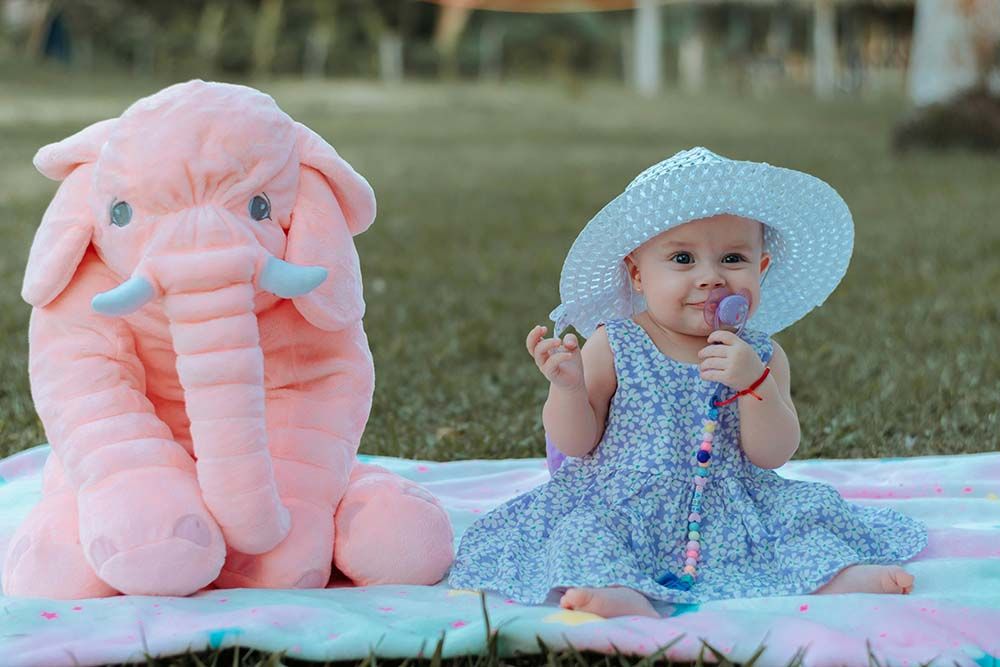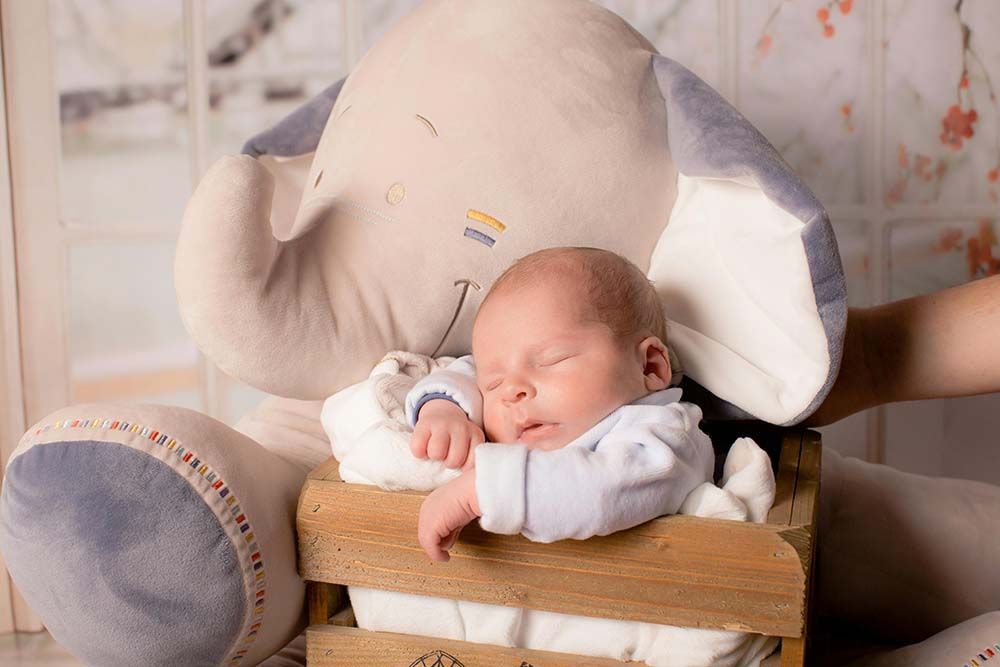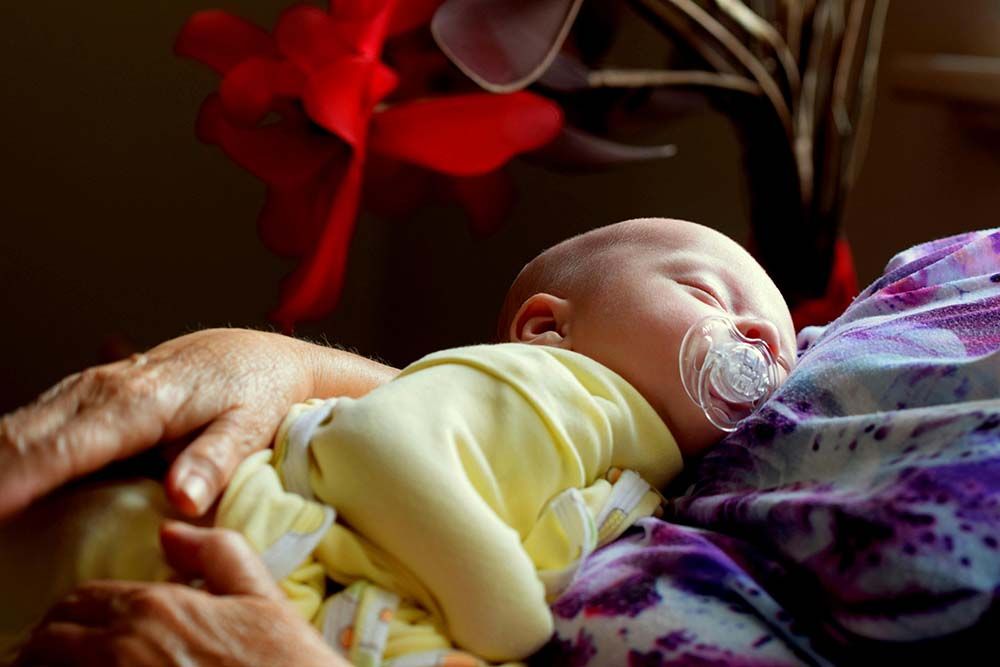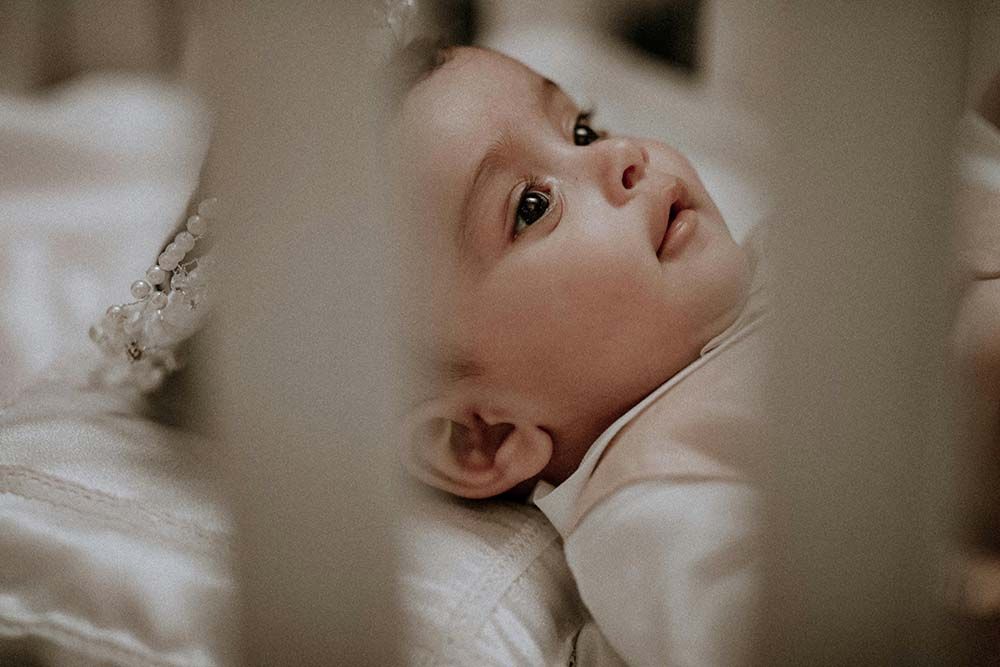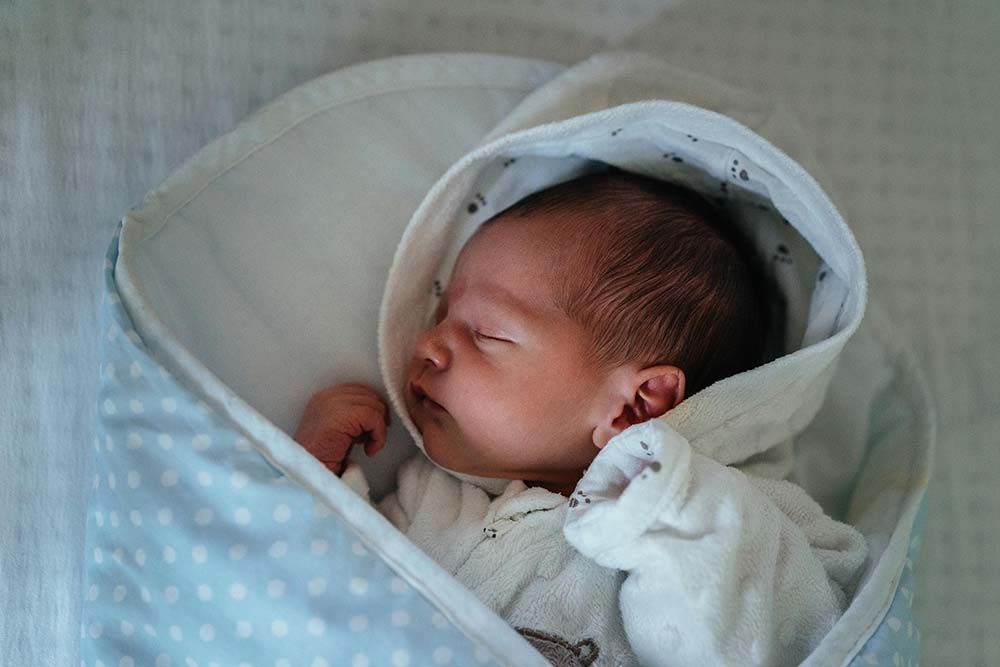

As a new parent, you must know what is witching hour, a terrified moment for most family. It can be frustrating when a baby who is happy during the day suddenly becomes fussy and difficult to soothe in the evening. No matter how much you try to comfort your baby, it may seem like nothing works. To help you navigate this period, we've put together some valuable insights and strategies. Understanding and patiently coping with this stage can make a significant difference in managing your baby's behavior. If you're facing these challenges, welcome to read on for more detailed guidance.
IN THIS ARTICLE:
When does the witching hour end
How to deal with witching hour
What is the Witching Hour? And When is the Witching Hour?
It is also known as “magic hour” or “restlessness period”, usually occurs from dusk to evening among infants, typically starting from 5 pm and lasting 2-3 hours up to midnight. Although the name sounds like magic or superstition, it is actually a common phenomenon of infant behavior, which usually occurs between weeks and months after the birth of a newborn, especially in infants aged 2 to 3 months.
During this period, infants may exhibit abnormal restlessness, crying incessantly, and be difficult to appease. What’s worse, although infants' basic needs (such as diet, clean diapers, etc.) have been met, they still show extreme anxiety. It is difficult to find specific reasons to explain this behavior, as infants do not seem to have any obvious discomfort or illness.
Normally, the irritability and crying at this stage usually reach its peak at 6 to 8 weeks of age and last for 3 hours a day, and decrease to 1 to 2 hours by the age of 3 to 4 months. But in some cases, it may be shorter or longer, lasting until the baby is 6 months old, which depends on individual differences in the baby and the specific circumstances of the day.
What is Not Witching Hour?
Sometimes, babies can cry in the evening with 3 hours, which also begins within a few weeks after birth and gradually decreases by 3 to 4 months of age. Although it occurs in the same time with similar behaviors, it is caused by pain of colic instead. Here, to help parents distinguish whether it is witching hour or colic. Below is showed a detailed comparison for your reference to better take care of your baby.
1. Time
Witching Hour: It usually occurs from evening to evening, around 5pm to 8pm. The duration is relatively short, usually a few hours.
Colic: It has no fixed duration, but usually intensifies in the evening. Babies with colic may cry for at least 3 hours a day, at least 3 days a week, and last for more than 3 weeks.
2. Performance
Witching Hour: During this period, infants may exhibit abnormal irritability and crying. Even if basic needs such as diet and clean diapers are met, babies still feel uneasy.
Colic: Babies may cry for a long time, with louder and sharper sounds. The crying may be continuous, and the baby may curl up their legs, showing symptoms of abdominal pain.
3. Possible reasons
Witching Hour: Excessive stimulation, physiological developmental changes, gastrointestinal discomfort, seeking comfort, circadian rhythm adjustment, etc.
Colic: The exact cause of colic is not yet clear, but it may involve gastrointestinal discomfort, digestive problems, allergic reactions, or other unknown factors.
All in all, the former is more like a developmental stage phenomenon, usually appearing within a specific time period and gradually disappearing as the baby grows. While the latter is a more persistent and frequent crying condition that requires the help of medical professionals to rule out potential health issues. Through these differences, parents can better understand the differences and take appropriate measures based on the specific manifestations of their babies. If you suspect that the baby has colic, it is recommended to consult a pediatrician for professional advice.
What is the Witching Hour Behaviour?
During this stage, infants may exhibit the following specific symptoms or manifestations:
- Babies cry relentlessly for no reason and are difficult to soothe.
- Infants show obvious irritability, constantly twisting or struggling.
- Babies are difficult to calm down and fall asleep even when they feel tired.
- Babies manifest excessive sensitivity to the surroundings, such as sound, light, or touch.
- Infants may constantly ask for hugs or closer contact to seek comfort.
- Babies may become hard to be fed at this time.
- If babies are crying for encountering digestive discomfort, they will constantly burp, fart, or attempt to exhaust.
What Causes Witching Hour for Baby?
1. Overstimulation: Infants may experience a flood of new stimuli, including sounds, light, and extensive activities. This overwhelming exposure can leave them exhausted and struggling to adapt, making it difficult for them to calm down for sleeping at first.
2. Fatigue: Babies can be excessive fatigue from full day’s experience, which causes infants to become irritable and difficult to self soothe.
3. Physiological development: Infants at this stage are experiencing rapid physical and brain development, which may cause them to feel uncomfortable or irritable at specific times.
4. Gastrointestinal discomfort: At this age, babies haven’t grow a mature digestive system, which may lead to gas accumulation or indigestion, resulting in discomfort.
5. Seeking comfort: Infants' biological clocks are not yet fully developed, and they may become anxiety and irritability when the environment becomes dark. Thus, they may cry for extra comfort and intimate contact.
6. Hunger: Newborns are usually take a feed after very 1-2 hour, and they may accustomed to this feed pattern. Thus, they can easily become hungry during the night, making them become irritable.
When do Babies Outgrow Witching Hour?
The “witching hour” of infants usually begin to gradually decrease around 3 to 4 months of age. As infants grow and develop, they will gradually learn to better regulate themselves, adapt to day night rhythms, and develop more regular sleep patterns. Therefore, most babies will get great improvement at around 4 months, and some infants even adapt earlier.
Of course, each baby’s development pace is different, some babies may no longer experience this period at around 3 months, while others may require a slightly longer time, lasting up to 6 months. The key is to maintain patience and continue to provide a stable daily life structure and soothing techniques, which can help babies smoothly navigate through this stage.
How Do I Stop My Baby’s Witching Hour?
After understanding what is the witching hour, it is time to cope with this period effectively. To help parents better manage this period and make their babies feel more comfortable and calm, we have collected some useful strategies below.
Maintain a calm environment:
Create a quiet and gentle environment in the evening to reduce external stimuli. If your home is noisy, you can try changing the position by taking the baby to another room or going for a walk outside.
Regular schedule:
Establish a stable daily schedule, including fixed feeding, playing, and sleeping times.
Preparation in advance:
Check and change diapers in advance to ensure that the baby is wearing comfortable clothing.
Gentle Comfort:
Use gentle shaking, tapping on the back, or walking back and forth with the baby to soothe.
White noise:
Use a white noise machine or play soft music to help babies relax.
Skin contact:
Increase security and comfort by hugging, caressing, or using swaddling clothes.
Regular feeding:
To avoid irritability caused by hunger, ensure that the baby is fully fed before sleeping at night.
Try different soothing techniques:
Every baby has unique preferences. Thus, the caregiver can try different methods, such as singing, speaking softly, or using pacifiers.
Check baby’s health condition:
Rule out the irritability caused by gas or reflux discomfort. If so, you can burp your baby to ease the pain.
Maintain patience:
Remember, every baby has their own developmental rhythm, and the “witching hour” is a temporary stage that gradually decreases as the baby grows. At the same time, maintaining patience and a positive attitude is very important.
Mind yourself:
It is a torture for one person to take care of a non-stop crying baby for a long time. If you are overwhelmed, you have to ask your husband or other family members to take turns to take care of the baby. In addition, when it is your turn, you can wear earplugs or headphones with your favorite music to exclude the sound of baby and relieve stress.
Ask for help:
If necessary, you can seek help from your friends or attend parenting classes to exchange experiences with other parents.

Editor' s Note:

The witching hour is truly existing and torturous. It is advise to not focus on just one thing at a time. Instead, it is encourage to try walking, shaking, singing, bathing, playing or other things simultaneously and randomly until you find the thing that your baby likes eventually. Don’t afraid to leave the baby cry for a few minutes. Sometimes nothing works and the baby just needs to calm down on his own.
Last Words
Actually, due to individual differences, variable environment factors, adaptability, dietary habits or other factors, not all infants will experience a “witching hour”. However, before taking actions to improve baby witching hour, your should pay attention to your babies’ crying behavior or reaction. If it seems to relate with pain or sickness, such as fever, diarrhea, vomiting, etc., please consult your pediatrician for professional advise and checking.




